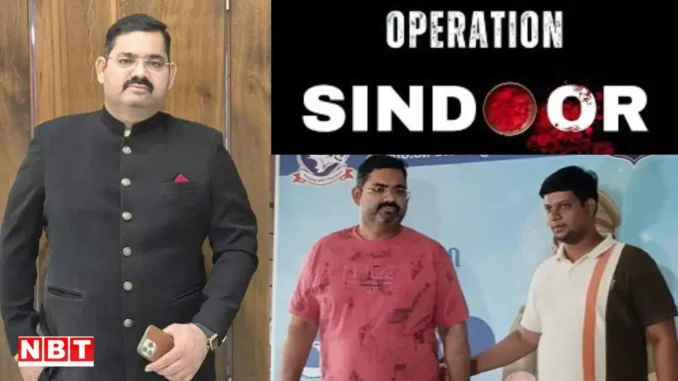
A Congress leader in Gujarat has been arrested for posting misleading content related to Operation Sindoor, an anti-terrorism operation conducted by the Indian Army. The Gandhinagar Cyber Crime Police carried out the arrest of Rajesh Soni, the Gujarat Congress General Secretary, on Friday. He is accused of sharing posts on social media that allegedly misled the public and damaged the morale of the armed forces. According to the police, a case has been filed against him under stringent sections of the Indian Penal Code (IPC).
Shakti Singh Gohil, the state president of Congress, protested against the police’s action, claiming that Rajesh Soni had done nothing wrong. Gohil, in a video message, emphasized the right to freedom of expression in the country and stood by Soni’s post, even suggesting that the police should arrest him as well.
Background of the Arrest
The Gujarat Crime Investigation Department’s Cyber Crime Branch arrested Soni early on Friday, following the filing of an FIR on Thursday. The arrest stemmed from Soni’s social media post questioning the Indian Army’s Operation Sindoor, an anti-terrorism operation conducted between May 7 to May 10, in retaliation for the April 22 terrorist attack in Pahalgam. During the operation, the Indian Army had also launched counterattacks on Pakistan’s airbases.
The police allege that Soni posted misleading information on Facebook, undermining the army’s morale. They have charged him under sections 152 (acts endangering India’s sovereignty, unity, and integrity) and 353(1)(A) (statements likely to incite public unrest) of the Indian Penal Code (IPC).
Allegations of Misleading Posts
SP of Gandhinagar Cyber Crime, Dharamendra Sharma, stated that section 353(1)(A) of the IPC could be applied to individuals who intentionally spread false information, rumors, or statements to demoralize officials or soldiers, or disrupt their duties. Under section 152, the punishment can range from life imprisonment to seven years, along with a possible fine.
The FIR mentions two of Soni’s Facebook posts. One post included an image of Prime Minister Narendra Modi dressed in a fighter jet pilot uniform, which was linked to Operation Sindoor. The post, written in Gujarati, claimed, “Please note that the soldiers will receive no credit. The cost of flying the Rafale jets in Operation Sindoor will be double the amount spent on Modi’s publicity.”
In another post, despite being aware of the facts, Soni allegedly tried to provoke people by claiming that the Indian Government had surrendered during Operation Sindoor. This post seemed to question the army’s operations and suggested a defeatist narrative.
Political Reactions and Police Inaction
Following the arrest, Shakti Singh Gohil, Congress’s state leader, strongly condemned the police action. He reaffirmed that freedom of expression is a fundamental right and claimed that Soni had done nothing unlawful by posting his opinions.
Meanwhile, some users on social media tagged the Kolkata Police and senior officials in their complaints, but there was no immediate response from the authorities. The incident has sparked debate about the balance between freedom of expression and the protection of military morale, with many questioning whether such posts could incite violence or disturb public order.
Conclusion: A Political and Legal Tangle
While the police action in Gujarat raises questions about freedom of expression, it also highlights the sensitive relationship between social media posts, public opinion, and national security. As the legal proceedings unfold, it remains to be seen how the courts will address the complex issue of online speech and its potential consequences on both the public and military morale.

Leave a Reply